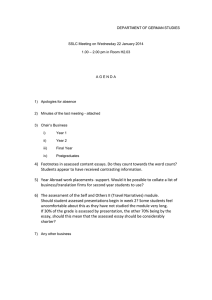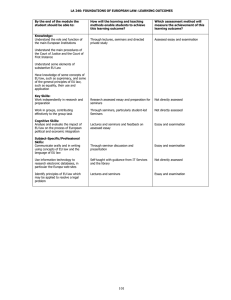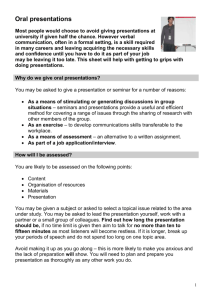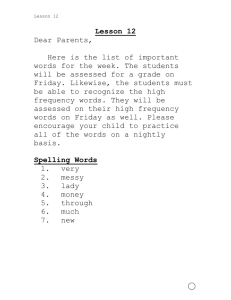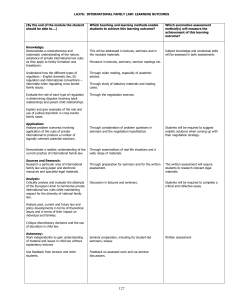Document 13477326
advertisement
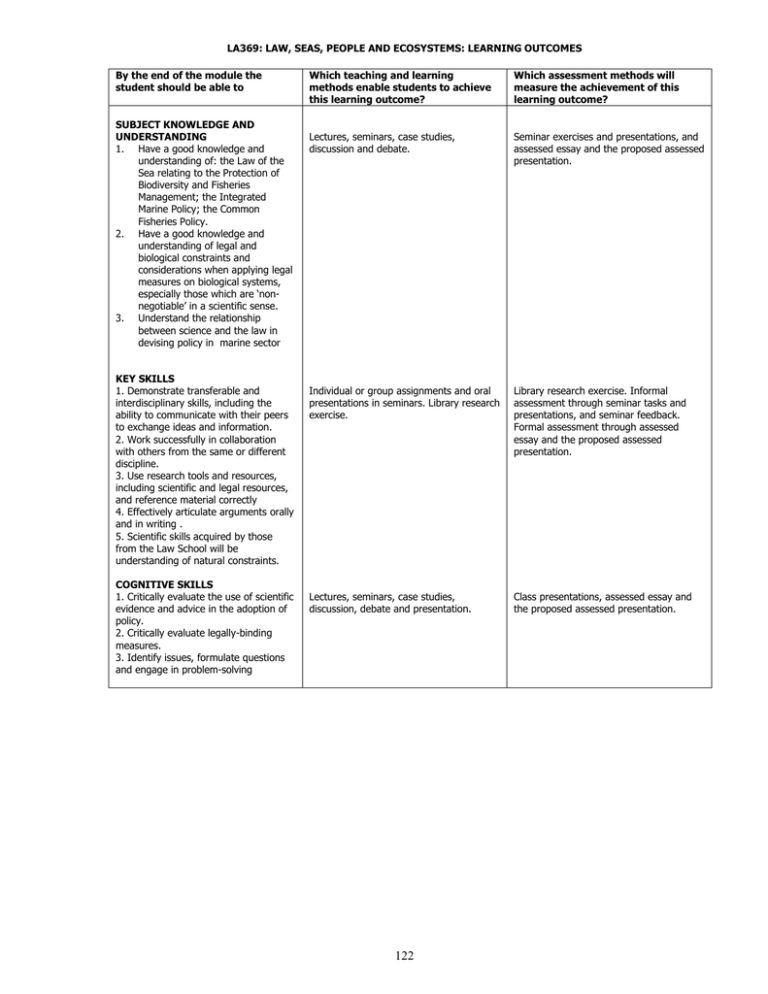
LA369: LAW, SEAS, PEOPLE AND ECOSYSTEMS: LEARNING OUTCOMES By the end of the module the student should be able to SUBJECT KNOWLEDGE AND UNDERSTANDING 1. Have a good knowledge and understanding of: the Law of the Sea relating to the Protection of Biodiversity and Fisheries Management; the Integrated Marine Policy; the Common Fisheries Policy. 2. Have a good knowledge and understanding of legal and biological constraints and considerations when applying legal measures on biological systems, especially those which are ‘nonnegotiable’ in a scientific sense. 3. Understand the relationship between science and the law in devising policy in marine sector KEY SKILLS 1. Demonstrate transferable and interdisciplinary skills, including the ability to communicate with their peers to exchange ideas and information. 2. Work successfully in collaboration with others from the same or different discipline. 3. Use research tools and resources, including scientific and legal resources, and reference material correctly 4. Effectively articulate arguments orally and in writing . 5. Scientific skills acquired by those from the Law School will be understanding of natural constraints. COGNITIVE SKILLS 1. Critically evaluate the use of scientific evidence and advice in the adoption of policy. 2. Critically evaluate legally-binding measures. 3. Identify issues, formulate questions and engage in problem-solving Which teaching and learning methods enable students to achieve this learning outcome? Which assessment methods will measure the achievement of this learning outcome? Lectures, seminars, case studies, discussion and debate. Seminar exercises and presentations, and assessed essay and the proposed assessed presentation. Individual or group assignments and oral presentations in seminars. Library research exercise. Library research exercise. Informal assessment through seminar tasks and presentations, and seminar feedback. Formal assessment through assessed essay and the proposed assessed presentation. Lectures, seminars, case studies, discussion, debate and presentation. Class presentations, assessed essay and the proposed assessed presentation. 122
